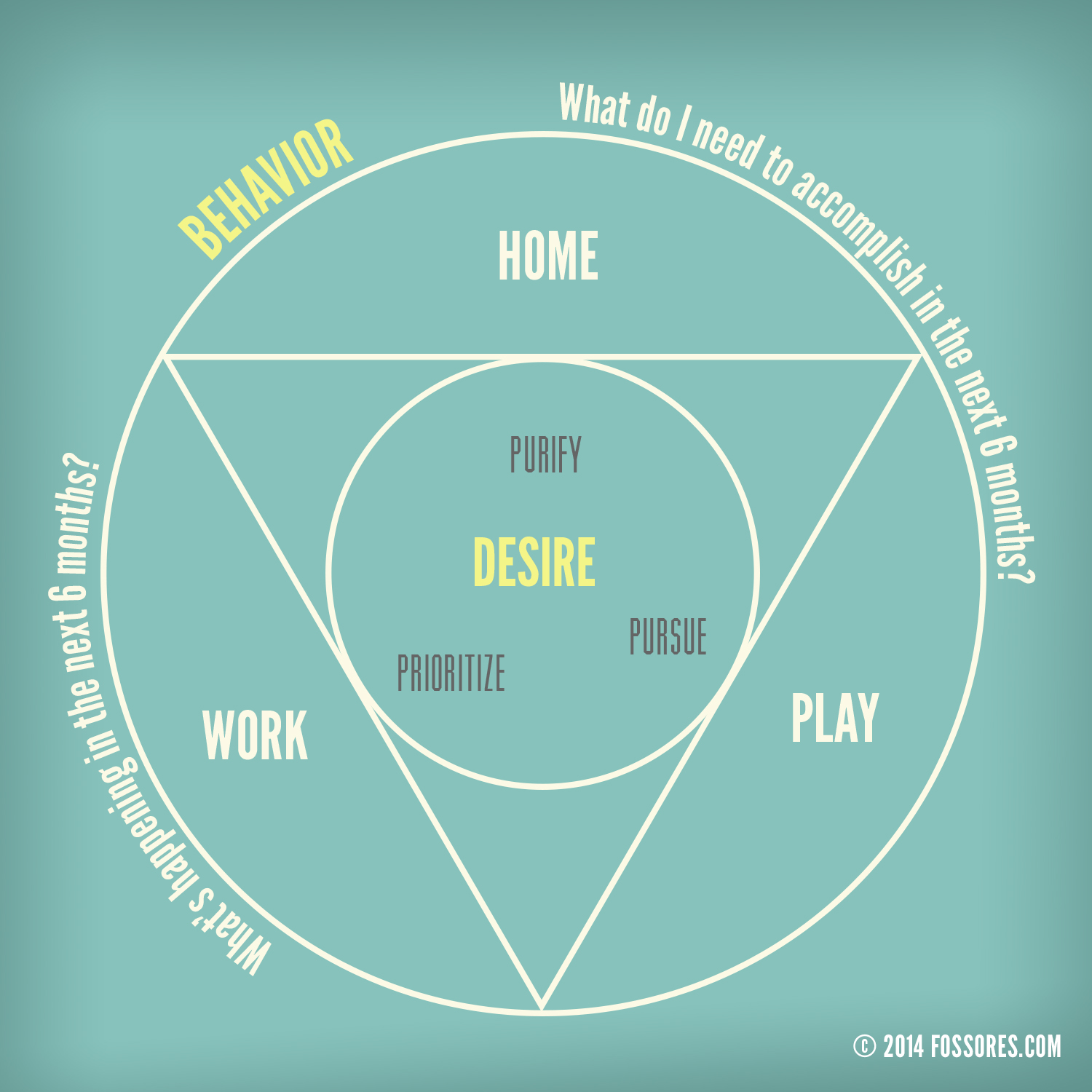Earlier this week my daughter came home from school in tears. She’s been conflicting with her third grade teacher and struggling in math. It’s not new. Anna has been unhappy this year and wishes she could go back to second grade and her old friends.
I sat with Anna and asked her a very difficult question: “What do you want?”
“To go back to my old class and my old teacher.”
“Sorry, babe. You can’t. What do you want from this year with this teacher?”
Thus began a long process of soul searching that ended up with Anna telling me she wants to maintain her self-control, understand her schoolwork, and feel like she matters at school.
The same process I used with my daughter can be used in adult life. In fact, it’s the basis for much personal coaching, and it helps people discern their desires, giving them a simple way to follow through on what they want. We can create an environment in which direct questions reveal our long-term desires. It’s not a complicated process, but it is very difficult.
The most powerful motivator in life is desire. In fact, it’s the only true motivator. Desire—ironically—can even compel us to do things we don’t want to do, since greater desires can overcome lesser ones. The desire to be fit compels us to run, even when it’s cold outside and we’d rather snuggle in bed. The desire to please God compels us to limit our behaviors—alcohol consumption, sexual activity, financial expenditures—even when we’d rather take someone home from the bar on payday.
Here’s a primer on personal coaching.
First, ask people what they want at home, at work, and at play. Be sure to differentiate between goals and atmosphere, and try to help them focus on how they want to feel and what kinds of things they’d like to experience.
Second, invite people to look ahead over the next six months. Help them identify the big things that are happening in each of the three major areas (home, work, play). Ask them how they want those events to go and how they’d like to feel after each one has occurred.
Third, ask them to identify what they’d like to achieve in each area over the next six months. These are SMART goals (specific, measurable, attainable, realistic, time-bound) and the six-month time frame is crucial. Anything longer than six months, and they won’t be able to focus. Anything less than six months, and they won’t be able to differentiate between major and minor priorities.
Finally, help them realign their lives according to their desires through purification, prioritization, and pursuit. Help them purify their desires so they reflect who they want to be rather than who they sometimes settle into. Help them prioritize their desires so the big things take precedence over the little things. Help them pursue these desires every day—in little ways as well as big ones.
The good news is that our daughter, Anna, experienced an almost immediate turnaround at school. She’s going home happier every day, and I had a wonderful meeting with her new teacher. Your life might not turn around quite so quickly—or the lives of the people you’re coaching—but I guarantee that the same God who gives you “the desires of your heart” (Psalm 37.4) will manifest those desires as something other than a longing to return to second grade.
fossores
Related posts
Categories
Category Cloud
Tag Cloud
Recent Posts
- Victors and Victims November 6, 2018
- 3 Hacks for Happiness October 29, 2018
- Hope Against Death September 20, 2018
- The Shape Of The Cross September 19, 2018


